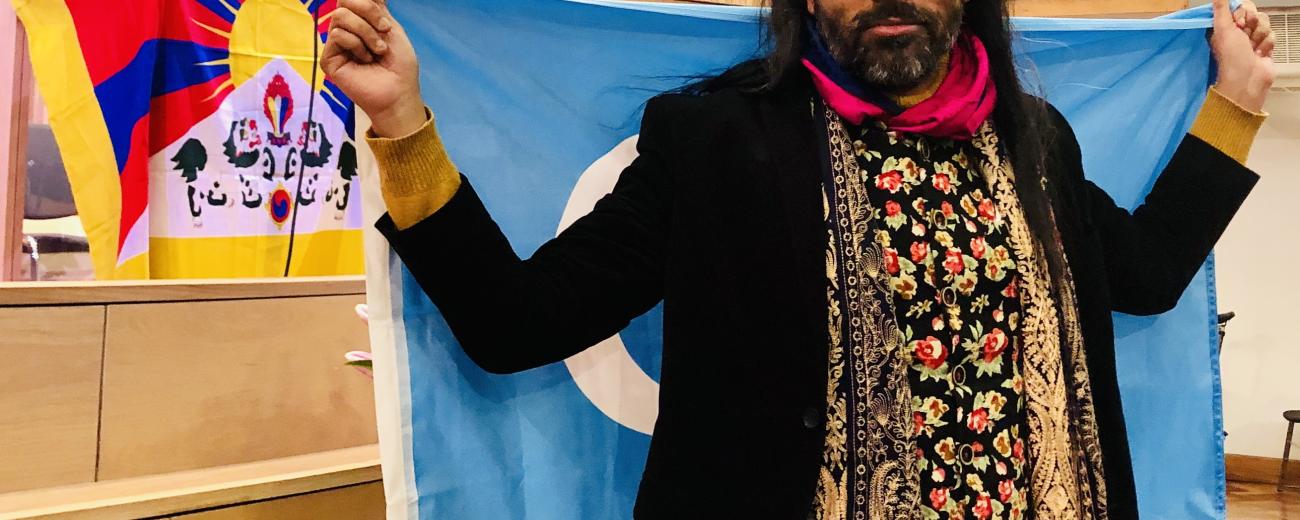
Contemporary Chinese colonialism and non-Chinese "progressive" hypocrisy

Key information
- Date
- Time
-
5:00 pm to 6:30 pm
- Venue
- Russell Square: College Buildings
- Room
- RB01
About this event
Abstract
While Chinese Communist Party state has long implemented a colonial mode of governance over Tibetans and Uyghurs, is doing the same in Hong Kong and publicly speaks of Taiwan using a colonial vocabulary, there is a curious phenomenon of large numbers of "progressives" - feminists, leftists, liberals - in other countries, otherwise claiming to be anti-colonialists, being apologetic about China. This phenomenon is an intellectual puzzle that needs unpacking rather than simply rejecting those who practise it as "tankies". We cannot begin the political and intellectual project of decolonising China without first recognising contemporary colonial practices and silences around it. The talk will identify the multiple ways in which contemporary China is a colonising state, highlight a few prominent, but non exhaustive, examples from Western and South Asian countries of the leftists and/or feminists and/or other progressives denying Chinese colonialism at best and advocating it fully at worst, and explain the latter as resulting from a curious mix of racialised paternalistic Sinophilia, selective progressivism, and selective socialist fantasies, all masking as 'anti-Western propaganda'.
About the speaker
Professor Dibyesh Anand is Head of School of Social Sciences at the University of Westminster. He is also the co-chair of University's Equality, Diversity, and Inclusion (EDI) Committee as well as the Black and Minority Ethnic (BME) Network Committee and elected as the nominee for Staff Governor for the University's Court of Governors.
Professor Anand has a desire to produce scholarship that is meaningful to groups and peoples who are often marginalised, minoritised, occupied and suppressed. This desire comes across in hid research, academic writings and public engagement on topics including colonial practices of postcolonial states including China in Tibet and Xinjiang and India in Kashmir, politics and international relations of stateless Tibetans, Islamophobia in India, majoritarian nationalisms including Hindutva, politics of security and representation, ethnic relations in Zanzibar, emergence of China and India as major non-Western powers as well as contested nature of nation-state formations in China and South Asia.
He has authored monographs Geopolitical Exotica: Tibet in Western Imagination, Tibet: A Victim of Geopolitics, and Hindu Nationalism in India and the Politics of Fear and published a number of chapters in edited collections and articles in journals.
Professor Anand has held visiting positions at University of California Berkeley, Australian National University, Centre for Bhutan Studies, Institute for Defence Studies and Analyses, Jawaharlal Nehru University and the Central University of Hyderabad and delivered plenary talks, lectures and seminar papers at institutions in USA, Europe, India, China, Russia, Hong Kong, Pakistan, Singapore, and Australia. Currently, he is a Visiting Professor in Politics and International Relations at New College of the Humanities.
Registration
This event is open to the public and free to attend, however registration is required. Click here to register.
Please note that this talk is taking place on campus. This talk will not be recorded or live-streamed.
Chair: Professor Rachel Harris, SOAS Department of Music, School of Arts.
Organiser: SOAS China Institute
Contact email: sci@soas.ac.uk


